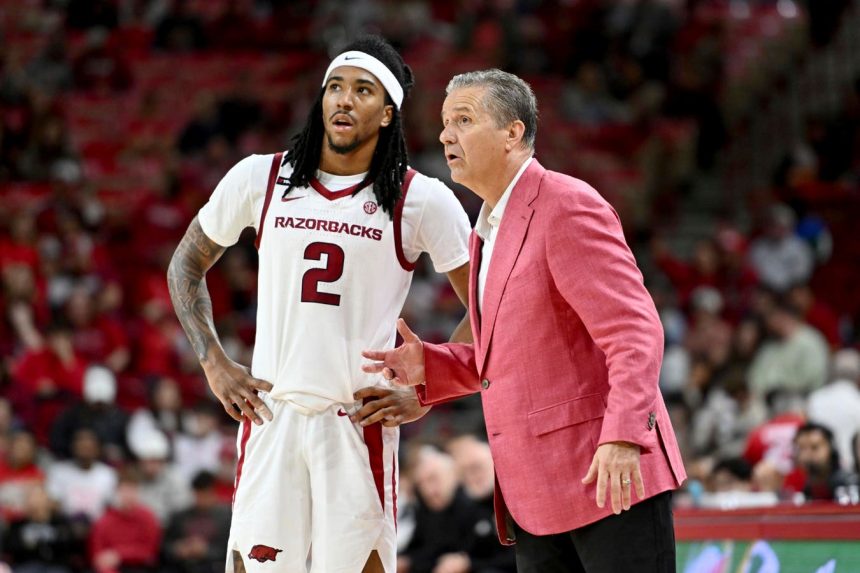John Calipari, the seasoned basketball coach with a Hall of Fame career, embarked on a new chapter at Arkansas after a decorated yet recently challenging tenure at Kentucky. His arrival at Arkansas, backed by prominent boosters, was met with surprise but also signaled a fresh start for the 65-year-old coach. This season, Calipari faces the task of molding a largely new roster, navigating early inconsistencies, and preparing his team for the gauntlet of the Southeastern Conference. A recent win against a ranked Michigan team offered a glimpse of the Razorbacks’ potential, but also highlighted areas needing improvement.
The victory over Michigan, a hard-fought contest that saw Arkansas overcome a 15-point deficit, showcased the team’s resilience and the individual brilliance of players like freshman guard Boogie Fland and transfer D.J. Wagner. However, Calipari remained focused on the bigger picture, acknowledging the team’s defensive vulnerabilities and their persistent struggles at the free-throw line. These recurring issues, along with the team’s overall lack of cohesion, underscore the challenges of integrating a roster comprised primarily of newcomers, including several transfers still adjusting to Calipari’s system.
The Razorbacks’ inconsistent performance this season reflects the ongoing process of team building. With only one returning player from the previous season and a series of injuries and illnesses hindering practice time, Calipari has had limited opportunities to develop team chemistry and implement his strategies fully. Despite these setbacks, the team has shown flashes of its potential, fueled by the scoring prowess of Fland and Wagner, the leadership of transfer Adou Thiero, and the expected emergence of Johnell Davis, a preseason All-American transfer who has yet to fully hit his stride. The team’s early losses to Illinois and Baylor, both strong programs, revealed the gap between potential and consistent execution.
Calipari’s coaching philosophy, built on developing NBA-ready talent, is being tested at Arkansas. He inherited a team in transition, requiring him to blend experienced transfers with promising freshmen while instilling a winning culture. The early-season struggles, punctuated by missed free throws and defensive lapses, highlight the work still ahead. Calipari remains optimistic, emphasizing the need for more practice time and a return to full health for his players. He believes the Razorbacks have yet to reach their full potential and anticipates significant improvement as the season progresses.
The demanding Southeastern Conference schedule looms large for Arkansas. The SEC boasts an unprecedented level of talent this season, with nine teams ranked in the AP Top 25. This depth presents a formidable challenge for any team, particularly one still finding its footing. Calipari acknowledges the difficulty of the conference, recognizing that every game will be a battle. The Razorbacks’ upcoming SEC opener against top-ranked Tennessee will be an early test of their progress and a measuring stick for their aspirations in the conference.
Calipari’s move to Arkansas represents a significant turning point in his storied career. While his past successes are undeniable, including a national championship at Kentucky and numerous Final Four appearances, recent NCAA tournament disappointments have fueled criticism. His decision to leave Kentucky for Arkansas offers him a chance to rebuild his legacy and demonstrate his coaching acumen in a new environment. The challenges at Arkansas are considerable, but Calipari embraces the opportunity to shape a new program and guide a talented group of players. The coming season will be a crucial test of his adaptability and his ability to navigate the complexities of the ever-evolving college basketball landscape. The SEC’s strength makes it clear that Calipari’s rebuild will be no easy task.



